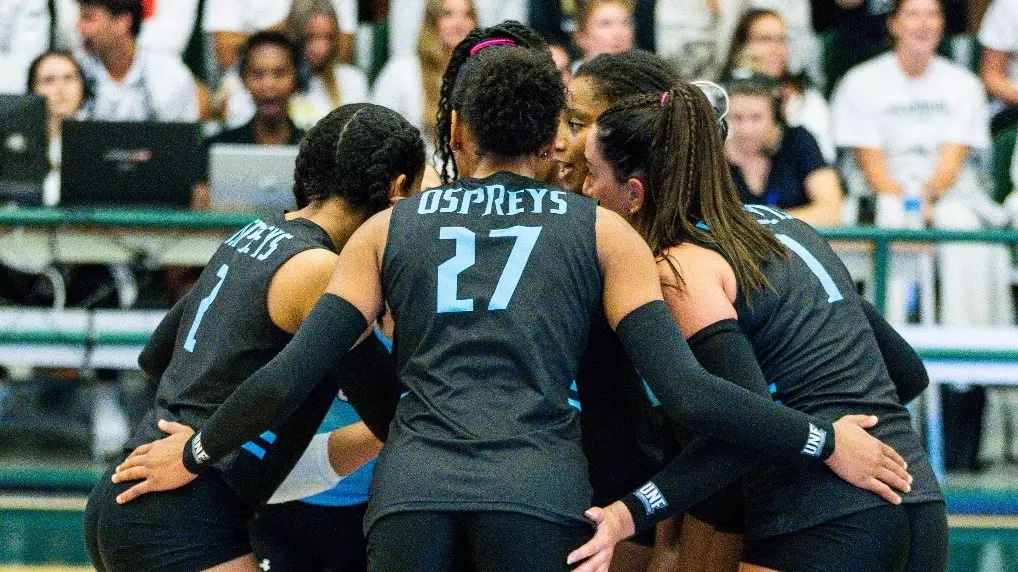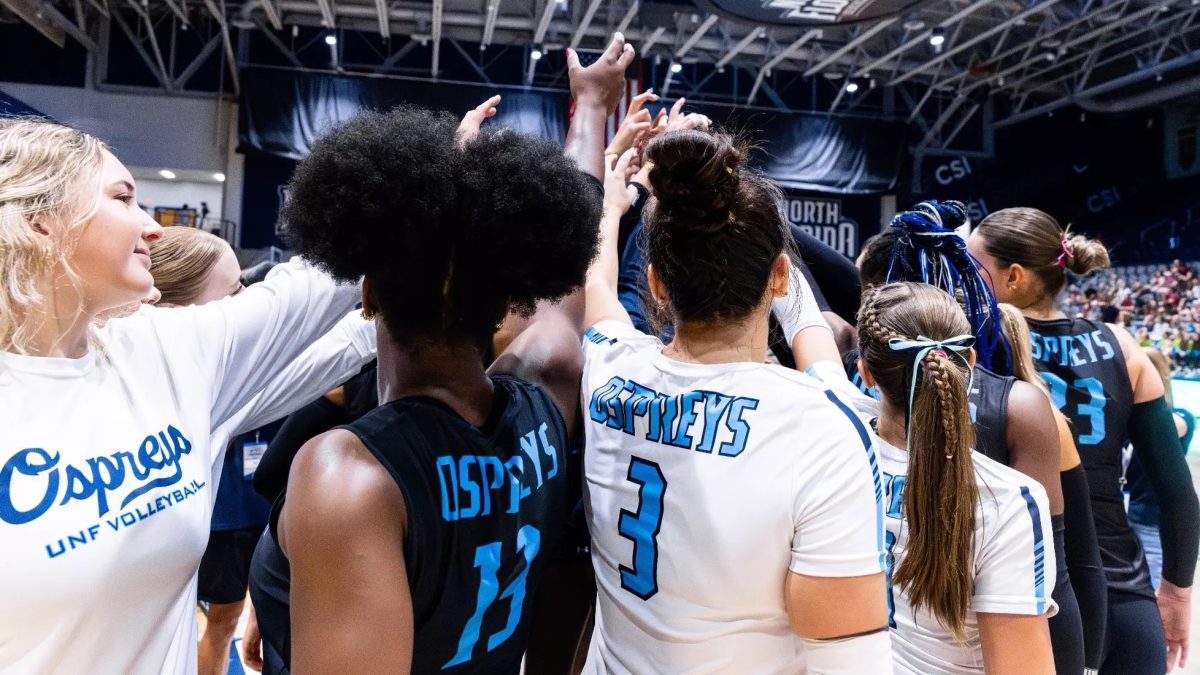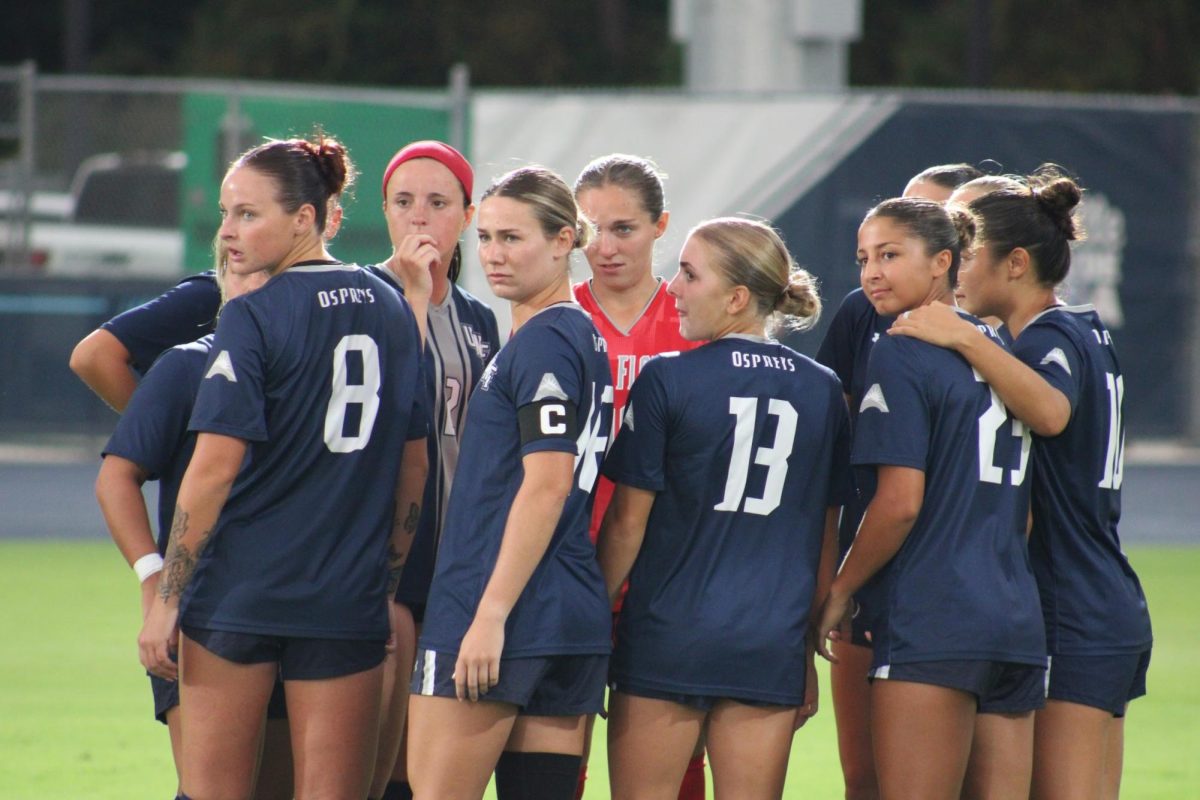- By: Matt Brockelman, Student Body President
- January 17, 2012

In a unanimous vote Jan. 17, the UNF Board of Trustees forwarded the university administration’s recommendation for establishing a new Academic Enhancement Fee to the Florida Board of Governors.
As the voting student representative on the BOT, I supported the fee’s passage. I am asking you, the student body, to thoughtfully consider this information before you decide this action was made by another stereotypical student body president who loses sight of the students he represents. While I always strive to find common ground with the UNF administration, you all are my number one priority when differences arise. In saying that, there is more to this development than a simple “yes” or “no” vote. I want to inform you of some important details while remaining brief enough not to lose you in the process. This is by no means a comprehensive article that covers all of my views relating to our tuition and fee costs; to create that, I’d need at least five times as many words.
When I received the first draft proposal for this fee toward the end of last semester, I quickly dismissed it as an idealistic but ineffective way to address some of our university’s academic challenges. I thought some of the ideas were worthwhile, but others were unrealistic or flat out not needed. The fee appeared to me as more of a “wish list” for academic affairs than a student-oriented group of meaningful and cost-justifiable solutions.
The underlying problem, however, that got the fee discussions going was real and not going away. Our graduation rates, though acceptable compared with national numbers, are not really where we’d like them to be. Percentage-wise, ours are in the 60s from year to year. UF, by comparison, has been in the 80s. In some situations, depending on the college a student is enrolled in (Coggin, Brooks, etc.), the student-to-advisor ratio can approach or exceed 600:1, respectively.
The state legislature and the Board of Governors have also targeted retention rates as a valuable performance measure to track; over the last year or so, we’ve seen numerous efforts to make this statistic more positive. All of these things indicate an institution’s academic quality, and an improvement in these has lasting positive effects for students – when these metrics increase, UNF’s reputation increases. Then we can be more selective in our admissions; then we have, generally, a higher academic caliber of students in our student body.
All of this will result in UNF students being more sought-after by employers, and I know we all want our degree to be as valuable as possible.
The sense the UNF administration has derived from statistical and practical analyses of different areas of campus is one of targeted improvement. In some academic areas, we are exceeding expectations compared to other universities like us. In other areas, certain problems may be too extensive or too costly to solve. The initiatives contained in this fee do represent a thorough, targeted effort to improve our students’ academic experiences.
There is going to be an overhaul of our student advising structure. The university is going to hire more advisors and probably open up major-level advising to sophomores. This will lower our student-to-advisor ratios, while allowing us to have better, more specific advising earlier in our college careers. When advisors have fewer students to manage – which, in effect, allows them to devote more time to each individual student – a positive relationship between the two can form; there is also less of a chance that an advisor will make a mistake if he or she doesn’t have a line of students waiting to be seen.
This fee also provides for a wealth of peer-based programs. In simple terms, this would allow upperclassmen to be paid to mentor underclassmen in university-approved programs which would fit the students’ majors. Although I personally – and probably a good number of students – wouldn’t necessarily take advantage of a program like this, that doesn’t mean a large number of others won’t benefit significantly. In this instance, our students can gain valuable leadership experience through mentoring, can have extra income from an on-campus job, and, on the underclassmen end, can receive valuable course assistance from peers who went through the same courses recently and have mastered the content.
A final attribute of this fee is an initiative for which UNF Student Government has spent a great deal of time over the years lobbying: more library hours. For the past several years, SG has funded the library to stay open later as well as remain open 24/7 during finals week. This new fee is going to cover those costs and add even more hours to the library – there’s more than $50,000 of revenue from this fee that can be used to do so. More student jobs will be created to help satisfy the library’s staffing needs.
My takeaway from this experience – one I hope you can share once you see the benefits of this fee next year – is students should not automatically be opposed to spending more money on a product – in this case, our education. We have grown so cynical about paying more, we often dismiss an extra charge as useless; that is not the case in this situation.
There are, however, plenty of students who struggle financially to make ends meet while at UNF. They should never be forgotten or marginalized, and 20 percent of this fee’s revenue will go to need-based financial aid for our students. If we invest intelligently now, we can see the cost returned to us in several years because of better jobs and income opportunities.
Our tuition and fees have gone up about 67 percent since I started here as a freshman, and that fact occupies a great deal of my thoughts. But there are a lot of variables feeding into that statistic that we need to keep in mind. Some of you may always be opposed to seeing your cost of education increase; I can’t blame you, and I don’t place any less value on your opinion because of it. I would much rather have seen that 67 percent remain at zero percent, but it’s not as simple as our university raising our tuition and fees just to receive more revenue. I wish it were that simple; it would certainly be easier to protect us from rising prices if the argument were that shallow. Unfortunately, our fate ultimately rests in the hands of state politicians in Tallahassee who have the entire state to budget money for, not just our higher education system. If you watch the news nightly, you’ll see a similar funding problem playing out in national politics. There are much bigger forces at play when it comes to how much we pay for our college degrees, but we do still have a considerable amount of influence over many aspects of this campus.
So, the next time you see a member of student government around campus, consider reframing the question. It is usually “will you promise to do whatever is necessary to block a tuition or fee increase?” I would question someone who says “yes” unequivocally because that means he or she either doesn’t understand the state university system or is being dishonest with you. Rather, ask a different question: “How will you ensure any tuition or fee increase is utilized with the best benefit of the student body in mind? How will you make sure I, a student, can be confident that if I pay more, I will actually get more?”
Email Matt Brockelman at sgapres@unf.edu.











